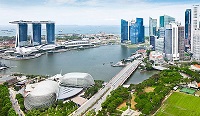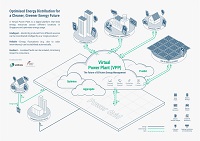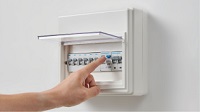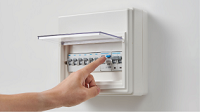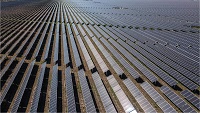For more information, please refer to:
Media Releases
24 Oct 2023
- The Energy Market Authority (EMA) and SP Group (SP) will pilot a Residential Demand Response (R-DR) programme to empower households equipped with smart meters to actively reduce electricity consumption during demand peaks in the power system. Targeted to be launched by second half of 2024, this pilot is the first-of-its-kind in Singapore to call upon households to make a significant difference for a more resilient and sustainable energy future.
- With system peak demand forecasted to increase at a compound annual growth rate of up to 6.5% over the next five years, reducing electricity consumption temporarily during peak demand periods, otherwise known as Demand Response (DR), helps to keep the power system running smoothly and more efficiently by making use of demand-side resources in addition to supply-side (such as large conventional power plants) to balance electricity demand and supply. For commercial and industrial companies, EMA has seen about a 1.5 times increase in demand-side resources, totaling to about 100MW since the launch of EMA’s regulatory sandbox[1].
- With smart meters progressively being deployed to residential and non-residential consumers, more consumers will soon be able to contribute to DR, by using these smart meters to monitor their electricity consumption, making electricity management simpler and more rewarding. Consumers can keep track of their weekly carbon emissions and adjust their electricity consumption habits accordingly to help reduce emissions, thereby minimising their environmental impact. As of September 2023, SP has installed more than 834,000 smart electricity meters across residential and non-residential premises.
- The residential demand response pilot will use the SP mobile application (SP app) to send alerts to participating households to temporarily reduce or defer their electricity consumption. Households can take action by deferring the use of home appliances such as washing machines or dishwashers, or increase the temperature or even switch off air-conditioning. Participants will in turn enjoy benefits such as financial incentives.
- On the pilot for households, Mr Ngiam Shih Chun, Chief Executive of EMA, said: “The demand response pilot helps to involve households in lowering electricity demand during peak periods. This can help create a more sustainable and efficient energy ecosystem for everyone.”
- Mr Stanley Huang, Group Chief Executive Officer of SP Group, said: “Partnering EMA on this pilot, SP Group will empower consumers with digital solutions to be more energy efficient and reduce carbon emission. Enhanced features on our SP App will provide consumers with timely and useful information on their utilities usage and patterns. Insights from this data are aimed at nudging consumers to make adjustments easily to reduce their consumption."
[1] In 2022, EMA launched a two-year regulatory sandbox for commercial and industrial companies to optimise their energy consumption. Participating companies will have to manage their electricity demand when activated and receive payments as an incentive for reducing their electrical demand on the national power grid.
